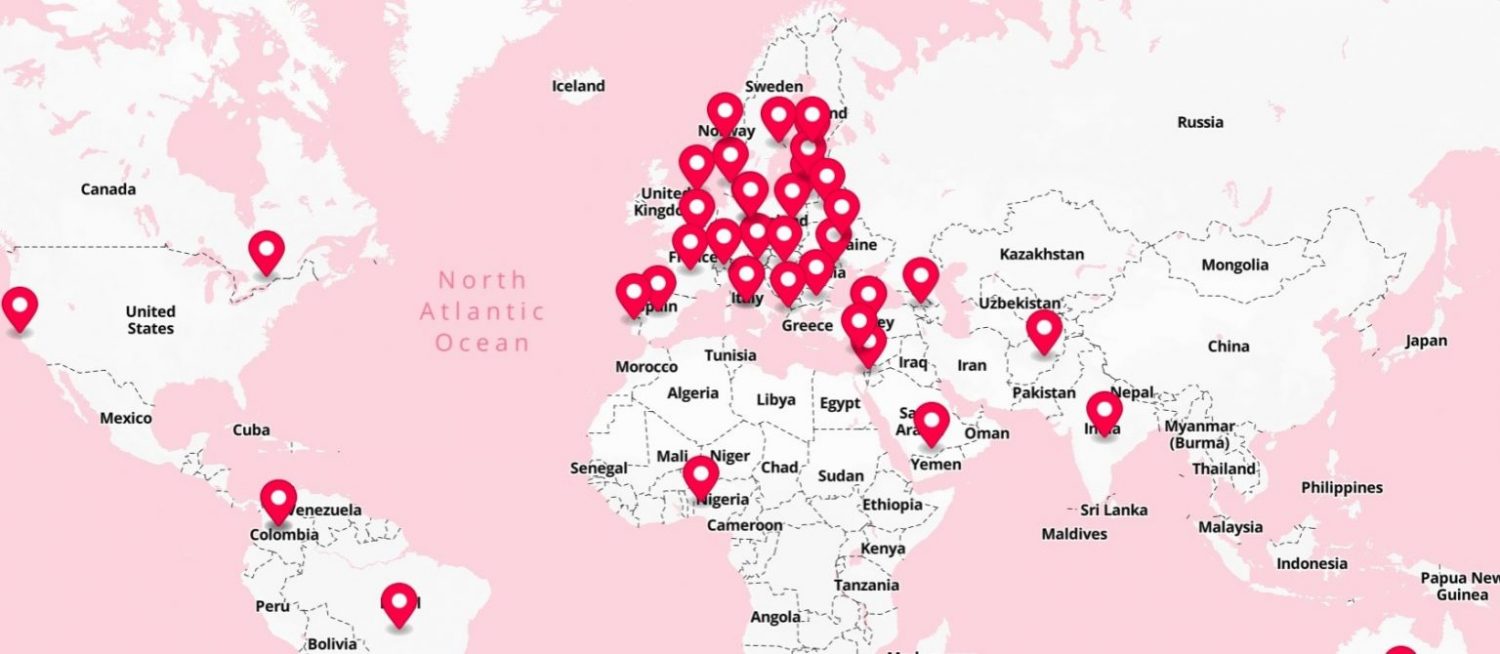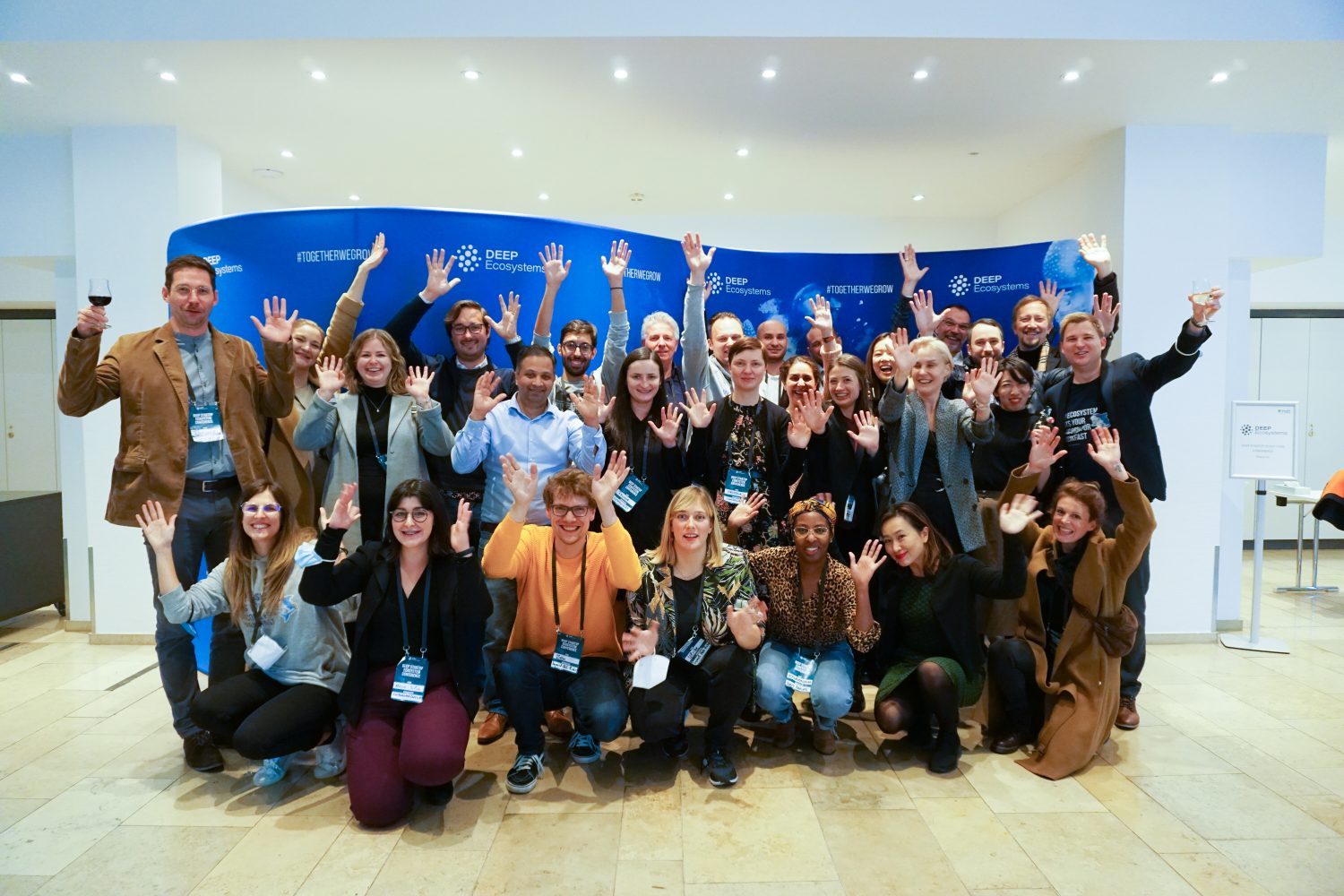The 3rd edition of the DEEP Startup Ecosystem Conference that took place on 23-24 June, 2022 in Ludwigsburg (Stuttgart), Germany co-organized by the City of Ludwigsburg and Innovation Network brought together 90 international and local startup ecosystem leaders, innovation managers, governments, and entrepreneurs from 22 countries to stimulate discussions around the current startup ecosystems development topics and challenges, such as impact, corporate innovation, investments, and emerging ecosystems.
How Public Institutions Use Hackathons and Accelerators to Solve Societal Problems
Accelerators, fab labs and hackathons – tech tools are increasingly being used by public and aid institutions to develop innovative solutions for social good. However, to create sustainable innovation for development, we need to move beyond hackathons. Together, we analyzed the existing approaches towards solution of societal problems and their efficiency for creation of scalable innovation that strives toward the sustainable future.
Top 5 Facts
- The number of purpose-driven startups in European accelerators has grown constantly since 2015
- 1 in 4 enterprises founded in the European Union today are “social enterprises”
- The median startup raises 1.2mn € after acceleration in Europe
- Hackathons provide visibility and engagement but only 7% of projects showed activity after 6 months
- Crowdfunding market was valued at 12.27 billion U.S. dollars in 2021 and it is expected to double by 2027
From urban mobility to global hunger or climate change, many societal problems are being approached with traditional development support and public policy methods, with significant but limited results. The often-cited solution for problems, also societal problems, for which no traditional solutions have been found, is innovation. As such, there is an increasing focus on leveraging innovation to improve society.
The challenges of innovation for societal problems are divergency between public benefit and profit extraction by innovation, access to funding, the need for justifying innovation risk within existing hierarchies, slower reaction and action speeds, as well as a misalignment of incentives for innovating. Small companies are often better at innovating and overtaking the established market leaders, while large companies have intrinsic challenges to generating innovation within their organization, and public administrations even more so. Large companies normally have access to funding, any accessible funding will usually be applied to increase profits in the short term, rather than make risky long-term investments. This means that the incentives for innovation and for use of funds are misaligned. In large companies with dependent hierarchies, decision-makers need to provide justifications for all business decisions.
More technology, just like more funding, are not enough to reliably generate innovation. Given the similarity in innovation challenges between tech corporations and societal problems, similar solutions may also work. Many new instruments, mostly from Silicon Valley, try to address the innovation challenges.
The concept of open innovation simply signified the paradigm that innovation could come not only from inside, but also from outside any organization. The two types of open innovation relevant for societal problems are: 1) the sharing of knowledge and resources (open source) from the organization with the public, and 2) sourcing and generating outside knowledge and resources to use, with or without monetary rewards.
Global iterations of “hack the crisis”

Several instruments used to reach these goals:
- Crowdfunding: fundraising with a high number of contributors giving small amounts.
- Hackathons: design sprints, in which questions are tackled by small groups in a limited time frame.
- Idea competitions and open calls: methods to generate ideas in which contributors are encouraged to compete for prizes, grants, or work orders.
- Accelerators (Hello Tomorrow foodtech competition, World Food Program) .
- Citizen engagement and crowdsourcing: citizen participation combine the collection of input about needs with possible solutions, higher visibility, and an engagement which facilitates lasting change within a population
- Innovation Networks: internal or external networks (industry associations or universities), which contain transfer of knowledge.
- Data sharing (Hasso-Plattner-Institute knowledge-sharing platform)
The growing toolbox of innovation tools facilitating inclusion and participation at low costs thanks to tech is a great opportunity for institutions and public administration to create innovative solutions and include citizens.
Find the full publication here.

Join Our Community!
Become the DEEP member and amongst various opportunities, you would receive:
- Free access to all upcoming DEEP Ecosystems Conferences
- Tracking of >8,000 startups in the Heatmap Startup List (4x per year)
- Annual list of Who is Who of European Ecosystem Leaders
- Full Access to Premium Publications and Analysis on Ecosystem Trends
- Quarterly Expert sessions with our Data Experts on Ecosystem Trends in your City compared to Europe
- Tailor-made Data Extracts and Analysis on Demand
You can also find our strategic recommendations from previous editions in the following Strategy White Papers:
About DEEP Ecosystems
DEEP Ecosystems is a global community of startup ecosystem builders, dedicated to supporting grassroot innovation projects and fostering interconnectivity among startup ecosystems globally.
We believe in entrepreneurs to build ecosystems that solve the biggest challenges of our times. We help to grow and connect ecosystems through our DEEP Startup Ecosystem Accelerator (DEEPSEA), with over 200 alumni since 2018, one of the biggest ecosystem builder communities in the world that gathers twice a year in our DEEP Startup Ecosystem Conference. Both are backed by our data-driven insights and reports on startup ecosystems through our open Startup Heatmap Europe data platform.
